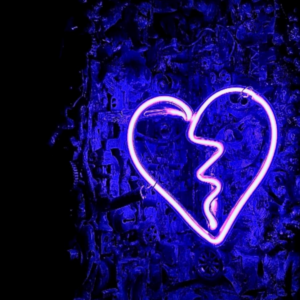First Place Winner of Voyage’s Summer 2021 First Chapters Contest judged by Bestselling Author Sona Charaipotra
Content warning: grief, drowning, death
.
prologue / a second like two lifetimes
What I really want to do is practice toe loops with Tara, since we got our skates sharpened when we went downtown to the movies last weekend. But skating isn’t allowed on Jamaica Pond, even on days like today when the ice is frosty and white instead of milky blue, so instead we’re rolling a half-assed snow woman from the rocky bank. Tara’s brothers are sledding on the other side of the pond, on the hill we call The Bowl because its sides are so steep. I think she wants to join them, but it’s been kind of awkward to hang out with Jason since I turned down his homecoming invitation in the fall.
I wish we could skate, because then it would be just me and Tara, flying faster than the boys could keep up.
She keeps looking over her shoulder toward them, so I tap the heel of my boot against the ice and say, “Let’s go out to the island.”
Tara scoffs, picking rocks out of our snow woman. “And do what?”
“I’ll tell you a secret,” I wheedle. I don’t really care about gossip, but secrets are Tara’s currency. She soaks them up like she’s preparing for some ultimate quiz bowl concerning the skeletons in our classmates’ closets.
Sure enough, she perks up. “Will you tell me who you’re gonna ask to winter formal?”
I take a tentative step onto the ice, and when it holds, I take another few steps and pick my way onto one of the crayfish cairns, throwing my arms out as I balance on the top. “I told you, no one.”
“Okay, at least who you like, then. There’s no way you’re writing that song for no one.”
“All right, fine.” I don’t like-like anyone, but Tara always thinks I’m lying when I say that. And besides, the song is for her. It’ll be her eighteenth birthday gift in April, but I can put her off the scent until then.
She grins. “Then I’ll beat you there,” she says, and she bounds out onto the ice.
I jump off the cairn and dart after her, and when I overtake her, her bright laughter blooms behind me.
“I’m coming for you!” she yells, and I run faster. I have enough of a lead to beat her there, but even still, I wait until I’m a couple of steps from the island to turn and announce my victory.
I spin and open my mouth to yell.
The next second feels like both of our lifetimes laid end to end: the thundercrack shatter, the lightning web of hairline fractures, the blue wash of void that opens beneath her. I don’t even have time to scream.
Tara goes through the ice.
And I go after her.
1 / the only living girl in jp
I’m so deep in my own little world, trying to follow the melody that’s been in my head since I woke up, that I let my guard down in Flowerland, and I don’t realize until I step up to the counter to pay for my enormous discount bouquet that Ship from orchestra is running the register.
Immediately, my flight instinct engages. Flowerland is all outdoors, a cheerful carnival of little awnings over rows of hanging baskets and stacks of wooden crates, but suddenly it feels tight and airless, like it’s closing in around me. It’s not that I don’t like Ship, at least not any less than I like anyone else I went to school with, but he’s exhaustingly chatty, and I don’t want to explain why I’m buying half my weight in half-price flowers. I don’t want him to realize that this is a pattern, that I do this every other day, that I have a routine he’s interrupting. I don’t want to have to talk about this, because I don’t know how I can.
I almost put the flowers down. I almost go. I’ll turn around, take my bike, tell Tara that I’ll bring her a whole garden tomorrow to make up for missing today.
But he’s already clocked me, even with my head down and the rest of me mostly hidden by the wealth of flowers in my arms. “Mavie!” he goes, dread-inducingly eager, and I glance up guiltily through my bangs. “Hey! How’s it going?”
I raise my head half an inch more. He’s beaming me a friendly, deliberate look over the mound of marigolds and lilies between us, and I turn up the corners of my mouth in what I hope looks like a smile but feels more like a grimace.
“Oh, hey,” I say, like I’m just recognizing him now, like we didn’t make accidental awkward eye contact across the orchestra room every other day for the last four years, like I couldn’t do an excruciatingly detailed portrait series on the hilarious concentration faces he makes as he saws at his viola. “I, uh, didn’t know you worked here.”
“Yup,” he says, popping the p. “Just started. It’s only ’til I leave for Northwestern, but it’s a pretty chill gig.” His eyebrows jump up above the black plastic frames of his thick glasses. One of the biggest mysteries about Ship is how he hasn’t shattered those glasses massacring kickflips in the school parking lot yet. “You’re heading for Carnegie Mellon, right?”
My heart plunges. “Nah,” I say, sliding a crumpled ten across the counter. He doesn’t notice that he never told me the price. “I got waitlisted. I’m, uh, taking a gap year.”
He bobs his head, his floppy hair bouncing into his eyes as he rolls my flowers into a butcher-paper bundle. “Sorry, dude. That sucks. You still playing, though?”
There’s no good way to say, For an audience of the dead. At least not without sounding like “Toccata in D Minor” is about to kick in behind me.
“Yeah,” I say instead. “I’ve been booking weddings and stuff here and there. Keeping the rust off,” which is what our orchestra teacher, Ms. Chapelle, always tells us to do over school breaks. Ship grins. I fumble with my wallet.
“So, big spender,” he jokes as he hands me my change. “Who’s the bargain bouquet for?”
“Wedding,” I say automatically, reaching around to tap the bright violin case strapped to my back. “I’m, uh. Just picking up some extras.”
He takes in my faded overall cutoffs, the neon bowling alley carpet pattern of the t-shirt I’m wearing underneath, the chunky digital camera hanging around my neck. One of his eyebrows creeps up skeptically, but all he says is, “Hell yeah, Bainbridge, get that cash. That case is killer, by the way.”
I fiddle with the strap on my shoulder. “Thanks. I like to overwhelm the human eye with as much color as possible at all times.”
“Yeah, I know,” he says, and I have the stupid little realization that yeah, I sat across from Ship for four years, but he also sat across from me. Those heavy-duty glasses he wears are probably directly related to my personal style.
“Well,” he says, tearing off my receipt and crumpling it up when I shake my head, “if you ever want to jam or something, Grace and I always thought you were really cool, and obviously you shred at violin, so… hit us up sometime?”
“Oh,” I say, over the klaxon of my brain’s People-Are-Trying-to-Socialize-With-You alarm. Grace sat across from me too, a few seats over from Ship. She’s even shorter than me, and she plays the cello with a ferocity I equate to those Food Network chefs who are really passionate about knives. I like her, but like Ship, she’s the kind of person who can—and will—talk for hours without coming up for air. I barely had the bandwidth for that when Tara was alive, never mind now.
“I don’t know,” I say, clutching the flowers to the bib of my overalls and taking a step back. “I’m kind of busy? With all the weddings. But I’ll think about it.”
“Sure,” he says easily. “No pressure. But, you know, it’d be cool. We’ve kinda wanted to ask you since your whole campaign to do the Fury Road music for Great East, honestly.”
I did do that. The motion didn’t pass, because apparently rights for the Fury Road soundtrack are mind-bogglingly expensive, but this past spring, it was the only thing I spoke up in school to talk about. We would have killed at the Great East Music Festival if we’d spent this year working on “Brothers in Arms” instead of another classical piece like every other school.
“Maybe we should pregame with that,” Ship is going on, pushing a hand through his hair. “Grace loves that movie more than her own mother. Last year for Halloween she w—”
“Okay,” I say, because I need him to stop talking about it. Partially because I want to get out of here, and partially because it plucks a deep, bittersweet chord in my chest: Tara loved that movie, too. “I’ll jam.”
It feels like stepping off dry land and into a kayak, an unsteady slip in my stomach that makes me feel like I should throw my arms out for balance. Instead, I focus on the cool damp of the flower stalks in my hands. The sweet air of the garish floral displays crowded at the edge of the lot. The uneven crunch of the gravel under my orange high-tops. The world steadies a little.
Ship tosses his hair out of his face with a flick of his head and grins. “Sweet,” he says, making little waist-level finger guns. “I have your number from Great East, I’ll put us all in a group chat.”
The butcher paper crunches as I crush my hands around the bouquet. “Okay,” I say, but it’s a lot harder this time.
I don’t let myself think about it as I traipse down the street to the cemetery, my camera thudding against my chest like a heavy second heartbeat. That’s a problem for Future Mavie, I tell myself sternly. Don’t let this bleed over into your time with Tara. Don’t let this ruin it.
Adjusting the flowers in my arms, I take a deep breath, then let it out slowly. I hum the melody I dreamed about to see if it makes a fitting end to Tara’s song, but it doesn’t.
I step through the gates of the cemetery, and I let out another breath.
Tara.
She’s translucent in the June sunlight, a beacon of a girl perched on a stone just inside the gate from Walk Hill Street. My whole chest goes loose when I see her. I’ve been meeting Tara at the cemetery for the better part of six months, but my heart still seizes every time with the fear that today will be the day that she’s gone.
She leaps off the stone and tumbles harmlessly to the ground. “Heyooo!” she calls, but my hands are too full to wave to her, so I high-kick in greeting instead, and she kicks her own leg up in reply. When we still skated, we were obsessed with becoming flexible enough to kick all the way over our heads, but Tara always got higher than me because her legs were twice as long.
“You’re late!” she says, bounding over, and I feel her shoulder pass through mine with just a chill to let me know she’s close. “But it’s okay. The people across the street have been watching Law & Order all afternoon and I am living for it. Look, you can see their TV perfectly.”
You can’t see it perfectly, but Tara has seen every episode of Law & Order so many times that she can recite some of them along with the show. I laugh, and she plucks one of the yellow lilies from the bunch and tucks it into her mass of curly red hair. I’m not sure why Tara can pick up objects just fine, but passes through anything that’s living. The closest thing I’ve found is some blogger’s hypothesis that it has to do with the electrical currents present in a living body and the way they interact with a disruption from a paranormal stimulus. Which, like, sure, maybe. It’s not like I have a better guess.
To other people, Tara is just a trick of the light—blink and you’ll miss her. But to me, she looks almost the same as she used to. It’s just that a little more light seeps through her now, that she’s more radiant than the rest of us. But then, Tara was like that when she was alive, too.
She moves through the rows of graves, the late afternoon sunlight soft around her, drifting a little behind me like always, and I check over my shoulder again and again to make sure she’s still there. She tells me about two little white dogs who came through this morning who definitely could see her—sometimes dogs hate Tara, but she says these two little white dogs were delighted.
“I wish I could bring Melon out here,” I say. The breeze blows my hair into my mouth, and Tara laughs at the face I make when I spit it back out. “She always loved you.”
“God, I miss Melon,” Tara agrees, but we both know the logistics of her ever getting to see my doofus dog again are slim to none. I don’t have my license yet, because it’s unnecessary in Jamaica Plain’s city layout, and it’s too far to walk Melon up here, and Tara flickers out when she passes through the cemetery gates. It makes both of us go quiet.
I pause to check the note I keep in my phone to see where we left off taking pictures last time, and a chill creeps through me as Tara hangs over my shoulder. “I think we were on Lilac.”
We turn the corner that hides Lake Hibiscus from this path, and even though I’ve seen it a million times, it always feels like an exhale, the way the reflections of the trees around it glance off the glittering water.
Is it morbid to love a cemetery? Oh, absolutely. But there’s something sacred about Forest Hills, wild and solemn. It’s braided together with Tara in my heart now, sweet summer air and bitter winter grass, dead leaves, and new sprouts—and I love it desperately: it brought her back to me.
Here’s what I think: I think death takes a little piece of you when you catch it in action. It reaches into your mind and knocks you around like a playground bully, and some of those bruises never heal. I think I saw Tara die that day on the pond, and I think that’s why I can’t remember anything about her death past diving in after her. She doesn’t like to talk about it, which I get, but I think there’s something that I’m missing. I think it’s why I feel like if I leave her, part of me will die, too.
“Lilac!” Tara calls now, darting ahead of me and leaping up to tag the signpost with her open palm. Every gym teacher in the Greater Boston public school system has tried to get Tara to play basketball, but Tara is a giant nerd who prefers quiz bowl to anything that makes her sweat.
School has been out for almost two weeks now, and all my social media is awash in pictures of my classmates’ decorated mortarboards, posed shots from graduation parties, photos they’ve taken at overnight college orientations. My parents offered to throw me a graduation party, too, but in an awkward, we’re-just-asking-so-you-can-officially-decline kind of way. I did decorate my mortarboard, though. I bought a big bunch of full-price marigolds in Tara’s favorite color, yellow right on the cusp of orange, and mine, a couple shades of orange deeper, and covered the flat side of the cap so thickly it could have been the earth in front of Tara’s headstone. In all the aerial shots they took of graduation, you can see me right away in the flood of royal blue gowns, a shock of sunset gold, walking for us both.
My violin case is that same shade of marigold. My mom says that I must be the safest biker in Boston—between my turquoise bike, fuchsia helmet, and the tangerine case strapped to my back like a quiver of arrows, I’m practically visible from space. Sometimes I feel like the Pied Piper of Forest Hills Cemetery, carrying my violin around like I’m going to enchant its ghosts to follow me into town. But the fact is, there’s only one ghost who matters, and I’m still working on the song I began for her a year and a half ago, and every day that I visit her, we sit by the waterfall on the far side of the cemetery, and I try to finish it. I never do.
My parents think I’m spending my afternoons continuing an AP Human Geography project I started during the semester, which isn’t entirely untrue. I am on a quest to document every stone in Forest Hills. Tara and I have developed a system: I photograph each stone, making sure all the details are legible. Tara leaves a flower or two in front of it, and we move on to the next. We average maybe fifty stones a day. We could probably do more, but the sooner I finish, the sooner I run out of excuses to spend all my time here, so we go slow. I don’t know what I’ll do with the pictures once I’ve captured all 17,800 graves, but that’s another problem for Future Mavie to figure out. It’s not like she’s got much else to do.
Once we’re out of flowers, we wander to the waterfall near the back parking lot, and Tara flops down in the grass like Melon does when it’s hot outside. Normally this is the most peaceful part of my day, playing through the song and testing out a new ending I know I won’t keep. But today, when I take out my violin, my hands go stiff and guilty.
I’ll think about it, I hear myself tell Ship.
And now I am thinking about it.
“So,” I say carefully, swiping the lozenge of rosin across my bow. I only use a little, so we can hear it when I play, but no one else can. “Do you remember Ship from school?”
Tara squints, pushing a sheaf of hair back from her face. “Tall? Big glasses? Played the violin?
“The viola,” I say, putting the rosin back in my case. “But yeah, him. He works at Flowerland.”
She’s watching me carefully, her chin resting on the knee that’s pulled up to her chest. She manifests wearing this green t-shirt dress she used to love, a blue plaid flannel tied around her waist, and her white Chucks, so old and beat-up they’re practically gray. It isn’t what she was wearing when she died, but it is what she was wearing the day we went to our first concert together last summer. It’s an outfit she wore a billion times after that. But I like to think that maybe she thought about that concert when she began to manifest.
“Ship works at Flowerland?” she prompts, and I blink.
“Yeah,” I say, tucking my violin under my chin. “He asked if I’d want to jam with him and Grace sometime. Grace Tsai, remember her? She was on the prom committee?”
“I wasn’t there for prom,” says Tara, perfectly even, and I flinch.
“Right. She was—Spirit Week, remember? She papier-mâché’d that huge Marie Antoinette wig?”
“That I remember,” Tara says, drawing her other leg up to her chest. “So they want to jam? Who are they, your dad and his friends playing Pink Floyd covers in someone’s garage?”
“I know, right?” I pluck out a couple of notes and tweak the tuning pegs. “He said they thought I was cool and that I ‘shred.’” I make exaggerated air quotes.
“Well, those are both true,” Tara allows. I can’t read her face, and not just because she’s incandescent in the sun. “Are you going to do it?”
I scoff, avoiding her eyes as I tune the rest of the strings and ease the bow across experimentally. “Probably not. What’s the point? They’re both gonna be gone in two months anyway.”
Tara nods. She bundles her hair into a knot and holds it in place. “Don’t say no because of me,” she says and lets it fall back over her shoulders.
I’m quiet. She’s quiet. I lift my violin.
Tara’s song starts out soft, meandering, quick steps through grass, languid strokes of sun threaded together into a long, tender swathe like paint. Minor chords crest and stretch against each other, reaching up, out, stepping back. It pulls slow, taut, delicate, until I can feel the yearning open up in the back of my throat, until I can see the story of us laid out like bright strands of embroidery floss, a string bracelet unraveled. And then I ease back, start to braid the ends back together, punching up with notes that change the minors to majors, just for a second, as the melody twines and charges forward. There aren’t any words, but Tara always sings along. Her voice trips and soars into harmony above me, and when she dips back down to meet me, it feels just like that little chill when her skin overlaps with mine.
Against my will, I think about where I would put a viola, a cello. There’s a turn from minor to major two-thirds of the way through that would sound killer undergirded by a cello. A viola could take some of my part, and I could jump up to the high notes in Tara’s harmony. The thought makes me tremble. I could carry her outside the cemetery if I had some help.
It makes something ugly curdle in the pit of my stomach, and I shake those thoughts off fast. I began writing this song before Tara died, and it’s a thread between us just like Forest Hills. It isn’t for anyone else.
But now, without school to remind me that other teenagers are alive, it feels like my whole social life grows out of the cemetery. I would never give up Tara for normal friends, but sometimes our situation makes me feel like the only living girl in JP. As my bow glances off the strings of my violin, as I come up on that hairpin turn I want a cello on, I bite down on my lower lip. In two months, my classmates will all be gone, and it’ll just be me and Tara again anyway.
She’s quiet as we walk back to the cemetery entrance. I don’t know if she’s still thinking about Grace and Ship, too. But when I linger by the gate to leave, she says, “You should let them hear my song.”
I blow my bangs out of my face. “Who?”
She hoists herself to the top of the iron fence and gives me a Look. “You know.”
“I don’t know,” I hedge. “That’s for us.”
“You’ve played that song at least six hundred times,” she says, twirling a curl around her index finger. “Someone else should hear it at least once.” She kicks her legs out toward me, shoelaces flopping toward her toes. “Or you could play something new.”
Except that I’m physically incapable of moving on to something else until I’ve finished the thing I’m working on, and Tara and I did homework together every day after school for eight years, so she knows that. “I have to finish yours first,” I say, and she drops her shoulders, tilts her head exasperatedly.
“That song is going to finish you,” she says, but she jumps back down from the fence and reaches behind me to mess up my hair as we say goodbye. Hair is a weird exception to the living/dead physical contact conundrum, I guess because it technically is dead. Tara’s a big fan of this loophole, and I pretend to be peeved even though I love that there’s still one part of me she can touch.
I trudge back up Walk Hill Street to unlock my bike from Flowerland’s rack. Ship’s beat-up Volkswagen is gone from the lot, but there are a bunch of other people blithely milling about, the strains of their chatting and the crunch of their steps on the gravel somehow too loud and muted all at once. I tuck my camera back into its case in the padded milk crate contraption I have jerry-rigged to the rear rack of my bike, feeling like I’m a world away from all of them.
The melody I dreamed about is back in my head. As I sail over the bumps of Walk Hill Street, the thunk of my violin case against my back falls into place beneath it, a steady metronome chasing my bike-like footsteps. When I brake at the intersection at the bottom of the hill, I check over my shoulder just in case, but there’s no one behind me, living or dead.
The Pied Piper of Forest Hills Cemetery, it turns out, is a real lonely gig.




